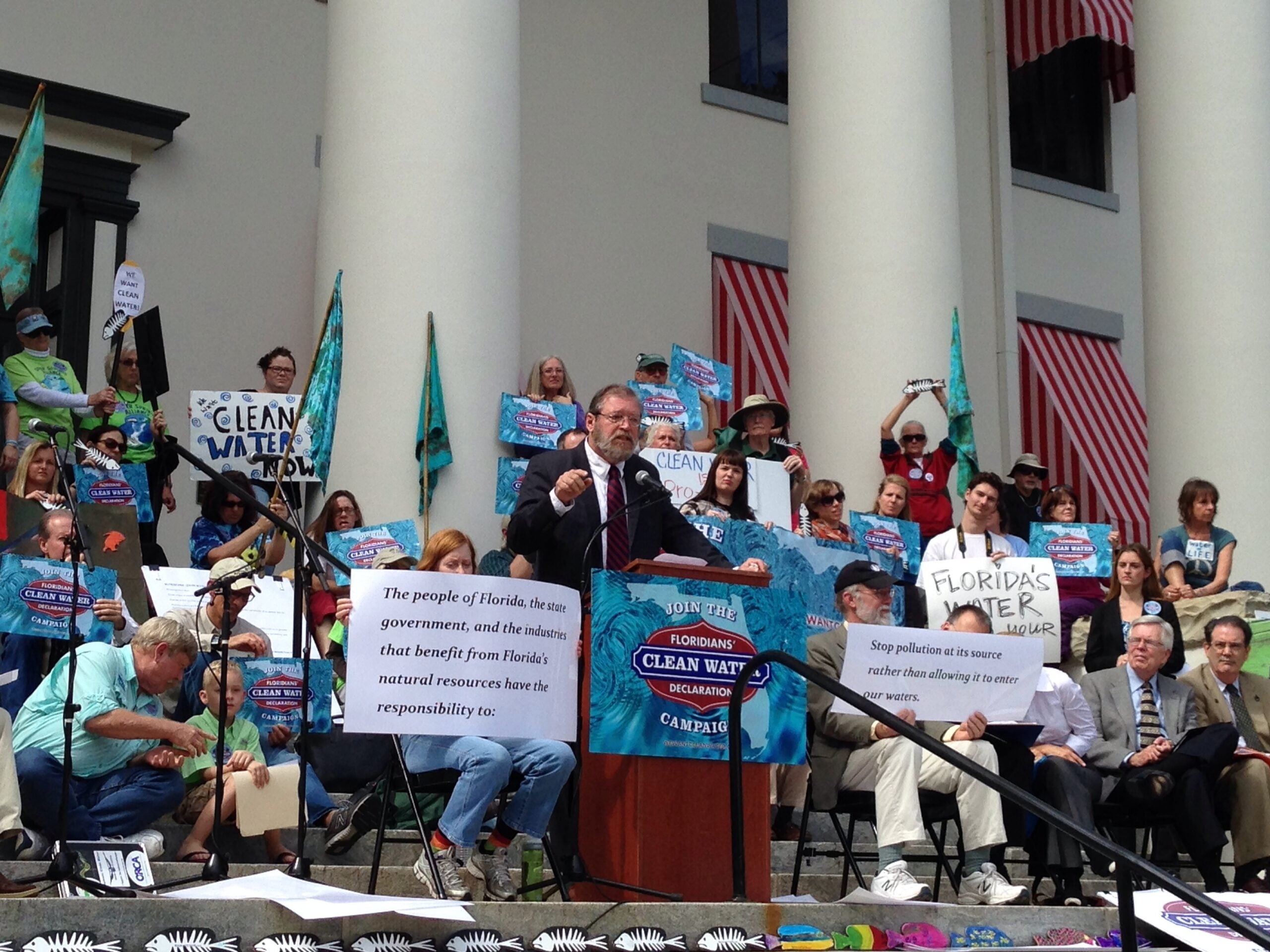Pollution Is Ruining Florida's Springs
Florida's 900+ freshwater springs are filling with algae because of poor stewardship by the state.

This page was published 11 years ago. Find the latest on Earthjustice’s work.
Florida has more than 900 freshwater springs, thought to be the largest concentration on Earth. In the last two decades, many of these clear blue pools have started filling with algae, and some of the best swimming holes in the state now have “No Swimming” signs posted due to the public health threat.
This is an inexcusable breach in stewardship, to let our fresh water supply get polluted from fertilizer, manure and sewage. And that’s not all – the state is allowing so many corporate interests pump water out of the aquifer that flows in our springs and rivers are diminishing.
Earlier this month, Earthjustice filed suit to protect one of the state’s most spectacular spring-filled regions. We are challenging the Florida Department of Environmental Protection’s new rules governing “minimum flows” in the Lower Santa Fe and Ichetucknee rivers and their many springs, just north of Gainesville in the North-Central part of the state. We filed on behalf of the Florida Wildlife Federation and the Ichetucknee Alliance.
The Florida DEP is so beholden to polluters that it is not up to the task of setting honest protections for the springs. Large cattle operations and fertilizer-dependent crops are overrunning the regions targeted by our legal action. Regulators are issuing permits to allow corporate interests to draw massive amounts of water out of the aquifer – without even metering the wells to figure out how much is being pumped out. Most of the water is going to industrial-sized agricultural operations and to feed thirsty Jacksonville, 75 miles to the east.
The Florida legislature has been reluctant to protect the springs. This year, state senators from springs country were deluged with protests from constituents who want the springs protected. They responded by introducing legislation that would have provided more than $300 million to protect springs.
But by the end of the 60-day legislative session, polluter lobbyists succeeded in weakening the measure and the legislation died altogether in the Florida House of Representatives.
“Lawmakers sided with developers and the fertilizer industry over public health, fishing and tourism,” reads an editorial in the state’s largest newspaper, The Tampa Bay Times. “They ignored the impact on property values and the security of the state's drinking water supply. Instead, lawmakers cared more about political maneuvering and campaign contributions than repairing environmental damage.
“The speed of the collapse of a bipartisan Senate bill on the springs was remarkable even for a legislature that often acts as a subsidiary for the state's most powerful industries.”
We will now have our day in administrative court, where challenges to state rules are heard. Our Santa Fe-Ichetucknee River rule challenge argues that the point of Florida’s “minimum flows” requirements is to make sure that the needs of a natural system are met (things like recreation, fish and wildlife) before the government gives anyone a permit to pump more water. When these minimum flows are reached, no more permits are supposed to be issued.
But that’s not what’s happening. Even though the state acknowledges that the Lower Santa Fe and Ichetucknee Rivers are already below the minimum flows that the natural system needs, the DEP’s new rules “grandfather” current permit holders for up to 20 years, and even allow them to increase the amount of water they can draw.
The new rules also allow the state to give out new permits to draw even more water out of a system which the state has already defined as overtaxed.
And, incredibly, the DEP wrote these rules that divide up the area’s “water pie” without even knowing how much water permitted users are actually pumping. The state doesn’t meter current water use.
The state’s new rules also allow water-permit holders to dramatically lower the aquifer and diminish the flow to a trickle by assigning a proportional share of the blame on upstream water users in Georgia.
The state statute intended to draw a line beyond which further withdrawals are prohibited. But the DEP rules don’t do that. And that puts these spring-filled rivers – some of the finest in Florida – at so much risk we had to go to court to protect them.
As for the state legislature’s failed attempt at passing meaningful laws to protect Florida springs, the Tampa Bay Times notes:
“The best anyone can hope for is that this year's breakdown will inspire an even bolder attempt next year — after the November elections.”
The Florida regional office wields the power of the law to protect our waterways and biodiversity, promote a just and reliable transition to clean energy, and defend communities disproportionately burdened by pollution.